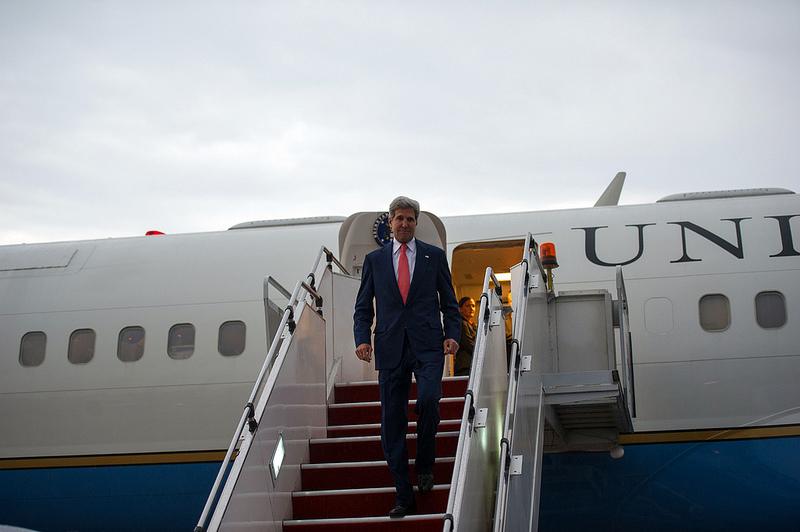Herding cats: the US rebalance
Posted By Michael Wesley on October 22, 2013 @ 06:00
 [1]Ask any specialist on Asian security to describe the strategic policies of China’s neighbours and you’re more likely than not to hear the word ‘hedging’ in the reply. As they become increasingly integrated with the Chinese economy, most of the countries of Eastern Asia have developed progressively strong defence linkages with the United States, and apparently each other.
[1]Ask any specialist on Asian security to describe the strategic policies of China’s neighbours and you’re more likely than not to hear the word ‘hedging’ in the reply. As they become increasingly integrated with the Chinese economy, most of the countries of Eastern Asia have developed progressively strong defence linkages with the United States, and apparently each other.
Indeed, much of the logic of Washington’s ‘pivot’ or ‘rebalancing’ strategy (depending on whom you’re talking to) seems to be predicated on Asian hedging. The United States, so the logic of the pivot goes, can use enhanced defence relationships in the western Pacific to bolster the predominance of its alliance system at a time of constrained defence spending, precisely because of the wariness of Pacific Asia about China’s growing clout.
It’s a logic that international relations theory would endorse. Alliance theorists from Waltz to Walt tell us that a growing threat will be met with ever greater solidarity among those it threatens.
But a closer look at the diplomatic and security dynamics in the western Pacific suggests things are a bit more complicated. American allies in this part of the world, far from banding ever closer together, seem to be less and less able to maintain civil relations. In May a Philippine Coast Guard ship opened fire on a Taiwanese fishing boat [2], the Guang Da Xing No. 28, killing 65-year-old fisherman Hung Shih-Cheng. The result was outrage in Taiwan, sanctions, reprisals against Philippino guest workers, and a major diplomatic incident. The issue has been smoothed over, but considerable bad blood remains on both sides.
The recent signing of a fisheries agreement [3] on the Senkaku/Diaoyutai islands between Tokyo and Taipei is being hailed as a major breakthrough, but should be regarded as a circuit-breaker in a progressively worsening relationship between Japan and Taiwan. Both countries had escalated the rhetoric over the disputed islands prior to the agreement, while Taiwanese President Ma Ying-jeou has made uncompromising statements in relation to Japanese war crimes.
More recently, relations between Tokyo and Seoul have deteriorated to the extent that President Park Gyun-hye and Prime Minister Abe Shinzo refused to speak to each other [4] at the recent Bali APEC Summit, despite being seated next to each other thanks to APEC’s seating rules. Japanese policy makers believe Seoul is playing a double game in relation to China and North Korea, and so can’t be trusted as a real ally. The Koreans are watching Japan’s reinterpretation of its right to collective self-defence nervously. Then there’s the ongoing tensions over the Dokdo/Takeshima dispute.
Even solidarity with Washington seems to be a fast-perishing asset. Taipei is still waiting for the submarines and fighter jets promised by the Bush administration. Concern has grown in Taiwan that this could mean that Washington is considering a deal proposed by Beijing whereby China would dismantle its missiles targeting Taiwan in return for a cessation of American arms sales.
And in Manila there have been mutterings that despite the rhetoric of the rebalance/pivot, the United States spends more on military assistance to Afghanistan–Pakistan in one day than its spends on the Philippines in two years. Added to all of this is a general sense around the region that the departure of Hillary Clinton and Kurt Campbell from the State Department and the non-attendance of President Obama at APEC and the EAS is sign of a new bout of inattention to Asia.
All of this should be of concern to the Abbott government. As Leszek Buszynski’s important new book, Negotiating with North Korea [5] (which was launched yesterday evening by the National Security College) shows, disunity among America’s allies and misconceptions in Washington are fatal for progress on regional stability and security. Helping foster working relationships among its many Asian partners should be high on the government’s agenda.
Michael Wesley is professor of National Security, and director of Academic Programs, Outreach and Research at the National Security College, ANU. Image courtesy of US Department of State [6].
Article printed from The Strategist: https://aspistrategist.ru
URL to article: /herding-cats-the-us-rebalance/
URLs in this post:
[1] Image: https://aspistrategist.ru/wp-content/uploads/2013/10/10191472573_b96be0bd74_c.jpg
[2] Philippine Coast Guard ship opened fire on a Taiwanese fishing boat: http://en.wikipedia.org/wiki/2013_Guang_Da_Xing_No._28_incident
[3] signing of a fisheries agreement: http://ajw.asahi.com/article/behind_news/politics/AJ201304100058
[4] refused to speak to each other: http://english.chosun.com/site/data/html_dir/2013/10/08/2013100801427.html
[5] Negotiating with North Korea: http://nsc.anu.edu.au/seminars/public-seminars-2013/seminar-20131021.php
[6] US Department of State: http://www.flickr.com/photos/statephotos/10191472573/
Click here to print.